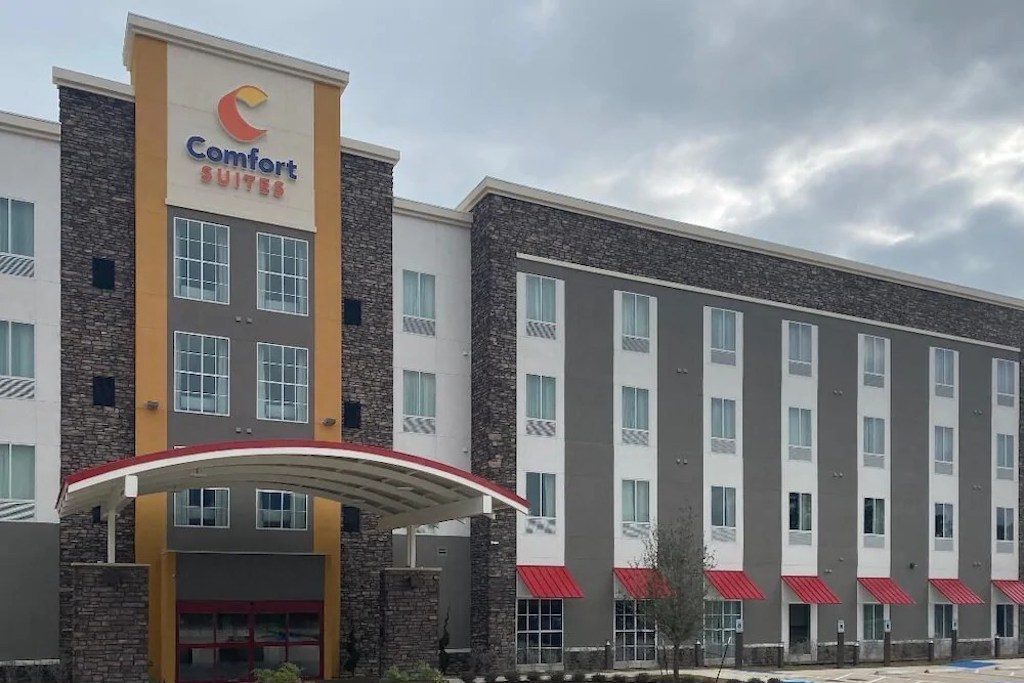Choice Hotels Sees Budget Brands Deliver 2020 Rarity: Profitability

Skift Take
A hotel portfolio of properties largely in drive-to settings and outside major urban centers enabled Choice Hotels to clinch a profitable year despite a global pandemic that decimated travel demand.
Choice Hotels achieved a $7.9 million fourth quarter profit and $75.4 million profit for all of 2020, the company reported Monday. This is a major financial milestone within the hotel industry, as the pandemic’s impact created the worst year on-record for most travel companies. Hilton earlier in the day reported a $720 million 2020 loss, and Wyndham posted last week a $132 million 2020 loss.
Choice’s leadership team chalks up the success to their existing hotel footprint in where most travel demand comes from these days: leisure travelers in the limited-service sector.
“Choice Hotels achieved a number of key milestones that demonstrate our long-term strategy of growing our presence in more revenue-intensive segments and locations is working,” Choice Hotels CEO Patrick Pacious said Wednesday on an investor call.
While Choice does have the upscale Cambria division as well as the higher-end Ascend Collection soft brand, a bulk of its operation is devoted to more limited-service offerings like the Comfort, Clarion, and Woodspring Suites brands.
Ninety-five percent of Choice’s domestic U.S. hotels are outside urban centers, where hotels have been most negatively impacted from the pandemic. The company’s extended-stay brands like Woodspring Suites and MainStay Suites had an average domestic occupancy rate of nearly 70 percent for 2020.
“We recognize uncertainty remains and our company continues to be significantly affected by the pandemic,” Pacious said. “Nevertheless, we are observing confidence for 2021 and beyond, given the vaccine and how consumers are beginning to feel more optimistic about future travel.”
Company leaders are optimistic around the continued future of drive-to travel and how that could benefit hotel owners. Even during Choice Hotels’ worst quarter of the pandemic — a relatively minor $2.4 million loss in the second quarter of 2020 — the company saw a surge in bookings from people who lived less than 25 miles from one of its branded properties.
More than 4,000 of Choice’s U.S. properties are within a mile of an interstate highway exit.
The focus on limited-service hotels is clearly picking up steam with some of the global giants. Hilton CEO Chris Nassetta earlier Wednesday noted his own company was putting more resources in this sector of mid-market brands going forward.
“The megatrend in the industry, in every market of the world, is the mid-market,” Nassetta said. “Why is that? It’s where the bulk of the population and population growth is. What can those people afford? Mid-market brands.”
Cost Cuts
Despite the relatively strong year, Choice still deployed some of the same financial measures seen industry-wide. The company enacted a series of cost-cutting maneuvers in the first half of 2020 to enable properties to perform better in a low-demand environment.
“We’ve accelerated a number of things that helped [owners] reduce the cost of running hotels,” Pacious said.
Grab-and-go items are more common in breakfast areas than hot food bars. On-demand housekeeping enables guests to opt out of daily cleanings, and contactless check-in allows someone to bypass the front desk altogether. These measures lead to smaller staff requirements.
The cost savings are still a necessity. Despite Choice’s relative strength, domestic revenue per available room — the hotel industry’s key performance metric — was down a little more than 30 percent.
Pacious also noted many owners in the Choice network qualified for federal economic relief, either through a Paycheck Protection Program small business loan or Economic Injury Disaster Loan through the U.S. Small Business Administration.
About 85 percent of Choice franchisees took out one of these loans in the first draw, and as many as 50 percent said they would look to take out a second from the stimulus measure passed in December.
“They’re getting the relief they need to bridge to where we need to get to on a recovery perspective,” Pacious said.




